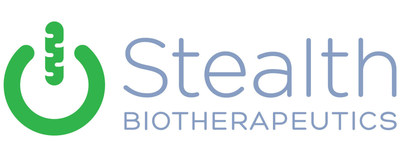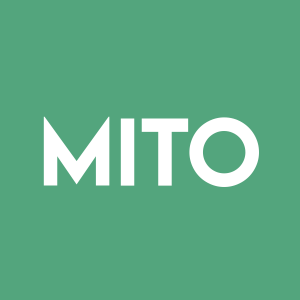Stealth BioTherapeutics Announces SBT-272 Data Updates and Orphan Drug Designation for the Treatment of Amyotrophic Lateral Sclerosis (ALS)
Stealth BioTherapeutics Corp (MITO) reported encouraging Phase 1 results on the safety and tolerability of its drug candidate, SBT-272, for ALS treatment. The drug demonstrated neuroprotective effects in preclinical models and has been granted Orphan Drug Designation by the FDA, highlighting the urgent need for ALS therapies. The Phase 1 study indicates that SBT-272 could achieve therapeutic levels in the brain, supporting its further clinical development. The findings were discussed at the NEALS conference on November 1, 2022.
- SBT-272 shows promising safety and tolerability in Phase 1 trials.
- Demonstrated neuroprotection in ALS models, which supports efficacy.
- FDA granted Orphan Drug Designation for SBT-272, facilitating its development.
- None.
Insights
Analyzing...
SBT-272 Phase 1 safety and tolerability data support further clinical development
SBT-272 was neuroprotective and reduced neuroinflammation in ALS preclinical model
SBT-272 Granted Orphan Drug Designation for Treatment of ALS
BOSTON, Nov. 1, 2022 /PRNewswire/ -- Stealth BioTherapeutics Corp (Nasdaq : MITO), a clinical-stage biotechnology company focused on the discovery, development, and commercialization of novel therapies for diseases involving mitochondrial dysfunction, today announced encouraging Phase 1 data on the safety and tolerability of SBT-272, a next-generation small molecule designed to reach therapeutic concentrations in the brain and to restore mitochondrial structure and function. The Company also announced that positive preclinical data demonstrating that treatment with SBT-272 provided neuroprotection of upper motor neurons harboring ALS pathology will be presented today at the Northeast Amyotrophic Lateral Sclerosis (NEALS) conference in Clearwater, FL. The Company recently received Orphan Drug Designation from the US Food and Drug Administration (FDA) Office of Orphan Products Development for SBT-272 for the treatment of patients with ALS.
"The preclinical data demonstrate that SBT-272 improves the stability and function of mitochondria in upper motor neurons that are diseased with TDP-43 pathology. This also provides neuroprotection and reduces neuroinflammation in the motor cortex of a TDP-43 model of ALS", said Hande Ozdinler, PhD, Associate Professor of Neurology, Feinberg School of Medicine, Northwestern University. "There appears to be compelling support for the therapeutic potential of targeting mitochondria in ALS and the ongoing clinical development of SBT-272."
Interim results from the Phase 1 study for SBT-272 demonstrated that selected doses are anticipated to result in therapeutic concentrations in the brain based on observed drug levels achieved in preclinical studies. While final safety analyses are ongoing, dose levels identified for subsequent clinical evaluation appear generally safe and well tolerated. These data support further clinical development of SBT-272.
"We are pleased to receive orphan drug designation from FDA for SBT-272 for the treatment of ALS, underscoring the urgent need for innovative new therapies for this devastating disease," said Chief Executive Officer Reenie McCarthy. "We are encouraged by the clinical profile of SBT-272 observed to date and look forward to evaluating its therapeutic potential in ALS and other neurodegenerative diseases of mitochondrial dysfunction."
NEALS Conference November 1, 2022
Translational Pharmacology of SBT-272, A Novel Mitochondria-Targeted Drug for the Treatment of Neurodegenerative Disease
Poster presentation, November 1, from 5-7pm
SBT-272 improved mitochondria structure and function and preserved Upper Motor Neurons with TDP-43 Pathology
Platform presentation, November 3, 11:45 am
About SBT-272
SBT-272 is a novel small molecule that targets the cardiolipin-rich inner mitochondrial membrane which is crucial for normal mitochondrial structure and function. Preclinical SBT-272 data have demonstrated mitochondria-protective and neuroprotective effects in models of ALS, FTD, alpha-synucleinopathy, a rare form of dementia that is similar to Parkinson's disease, Huntington's disease and ischemic stroke. We have also observed SBT-272-mediated improvements in functional assessments, lifespan, inflammation, and reduction of protein aggregates across certain nonclinical models. Data from a Phase 1 study evaluating subcutaneous SBT-272 in healthy volunteers supports further clinical development. We aim to develop SBT-272 for ALS and other neurological diseases of mitochondrial dysfunction. The Orphan Drug Act was enacted in 1983 to encourage development of drugs for rare diseases, which are diseases that affect fewer than 200,000 persons in the United States. Once granted, Orphan Drug Designation provides various development benefits for an investigational drug, including seven-year exclusivity after marketing approval is received.
About Stealth BioTherapeutics
We are a clinical-stage biotechnology company focused on the discovery, development, and commercialization of novel therapies for diseases involving mitochondrial dysfunction. Mitochondria, found in nearly every cell in the body, are the body's main source of energy production and are critical for normal organ function. Dysfunctional mitochondria characterize a number of rare genetic diseases and are involved in many common age-related diseases, typically involving organ systems with high energy demands such as the eye, the neuromuscular system, the heart and the brain. We believe our lead product candidate, elamipretide, has the potential to treat ophthalmic diseases entailing mitochondrial dysfunction, such as dry AMD, rare neuromuscular disorders, such as primary mitochondrial myopathy and Duchenne muscular dystrophy, and rare cardiomyopathies, such as Barth syndrome. We are evaluating our second-generation clinical-stage candidate, SBT-272, for rare neurological disease indications, such as amyotrophic lateral sclerosis and frontotemporal lobar dementia, following promising preclinical data. We have optimized our discovery platform to identify novel mitochondria-targeted compounds which may be nominated as therapeutic product candidates or utilized as mitochondria-targeted vectors to deliver other compounds to mitochondria.
Safe Harbor Statement
This press release contains forward-looking statements within the meaning of The Private Securities Litigation Reform Act of 1995. Such forward-looking statements include those regarding Stealth BioTherapeutics' expectation for the preclinical and clinical development of SBT-272 and the ability of the company to achieve its drug discovery, development, and commercialization goals. Statements that are not historical facts, including statements about Stealth BioTherapeutics' beliefs, plans and expectations, are forward-looking statements. The words "anticipate," "expect," "hope," "plan," "potential," "possible," "will," "believe," "estimate," "intend," "may," "predict," "project," "would" and similar expressions are intended to identify forward-looking statements, although not all forward-looking statements contain these identifying words. Stealth BioTherapeutics may not actually achieve the plans, intentions or expectations disclosed in these forward-looking statements, and you should not place undue reliance on these forward-looking statements. Actual results or events could differ materially from the plans, intentions and expectations disclosed in the forward-looking statements as a result of known and unknown risks, uncertainties and other important factors, including: Stealth BioTherapeutics' ability to obtain additional funding and to continue as a going concern; the impact of the COVID-19 pandemic; the ability to successfully demonstrate the efficacy and safety of Stealth BioTherapeutics' product candidates and future product candidates; the preclinical and clinical results for Stealth BioTherapeutics' product candidates, which may not support further development and marketing approval; the potential advantages of Stealth BioTherapeutics' product candidates; the content and timing of decisions made by the FDA, the EMA or other regulatory authorities, investigational review boards at clinical trial sites and publication review bodies, which may affect the initiation, timing and progress of preclinical studies and clinical trials of Stealth BioTherapeutics product candidates; Stealth BioTherapeutics' ability to obtain and maintain requisite regulatory approvals and to enroll patients in its planned clinical trials; unplanned cash requirements and expenditures; competitive factors; Stealth BioTherapeutics' ability to obtain, maintain and enforce patent and other intellectual property protection for any product candidates it is developing; and general economic and market conditions. These and other risks are described in greater detail under the caption "Risk Factors" included in Stealth BioTherapeutics' most recent Annual Report on Form 20-F filed with the Securities and Exchange Commission ("SEC"), as well as in any future filings with the SEC. Forward-looking statements represent management's current expectations and are inherently uncertain. Except as required by law, Stealth BioTherapeutics does not undertake any obligation to update forward-looking statements made by us to reflect subsequent events or circumstances.
Contact
Kendall Investor Relations
Adam Bero, Ph.D.
abero@kendallir.com
![]() View original content to download multimedia:https://www.prnewswire.com/news-releases/stealth-biotherapeutics-announces-sbt-272-data-updates-and-orphan-drug-designation-for-the-treatment-of-amyotrophic-lateral-sclerosis-als-301663981.html
View original content to download multimedia:https://www.prnewswire.com/news-releases/stealth-biotherapeutics-announces-sbt-272-data-updates-and-orphan-drug-designation-for-the-treatment-of-amyotrophic-lateral-sclerosis-als-301663981.html
SOURCE Stealth BioTherapeutics Inc.










